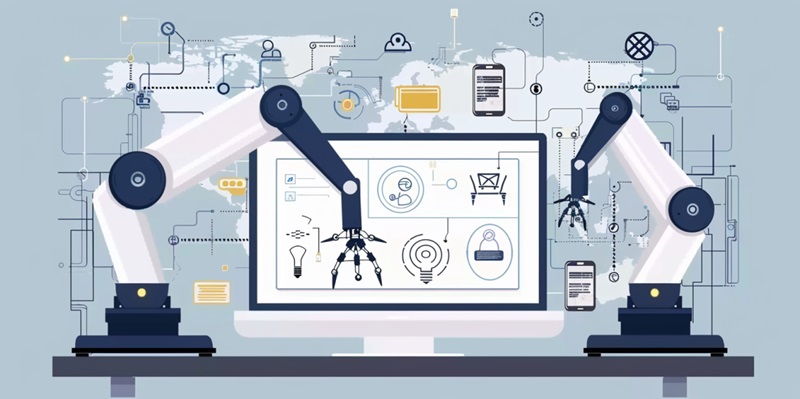In a significant move within the insurance and financial services sector, Aviva has made strides towards the future by implementing Robotic Process Automation (RPA) to substantially improve its adviser platform. This cutting-edge automation aims to simplify the complex and time-consuming tasks of client and asset transitions, which have traditionally been labor-intensive aspects of the advisory business. The new service, designed with valuable insights from advisory firms, ensures a seamless transfer process for clients and advisors alike, reducing administrative burdens and allowing for more efficient operations.
Engagement with advisory firms has been pivotal for Aviva, which anticipates increased adoption of the RPA-enabled service in the months to come. The adoption underscores a sweeping trend in leveraging technology to enhance business processes and service delivery. Aviva’s RPA integration is expected to reach full functionality within their platform by year’s end, as Al Ward, the head of Aviva’s adviser platform, asserts the collaborative spirit in which these technological advancements have been pursued for the greater good of efficiency and client service.
Industry Response and Talent Imbalance
Aviva is revolutionizing its adviser platform with the adoption of Robotic Process Automation (RPA), aiming to streamline the tedious process of client and asset transfers. This technology-driven innovation, informed by insights from advisory firms, enhances efficiency by simplifying a traditionally strenuous process for both clients and advisors. The initiative promises a reduction in administrative tasks and smoother operations.
The engagement of advisory firms was crucial to Aviva’s strategy, reflecting a broader industry tendency to harness tech in reinventing service delivery. Al Ward, head of Aviva’s adviser platform, highlighted the cooperative approach in deploying these tech advancements, which are slated to be fully operational on their platform by year’s end. With its forward-thinking move, Aviva foresees a rise in the utilization of its RPA-powered service, driving forward efficiency and client satisfaction in the financial services sector.

